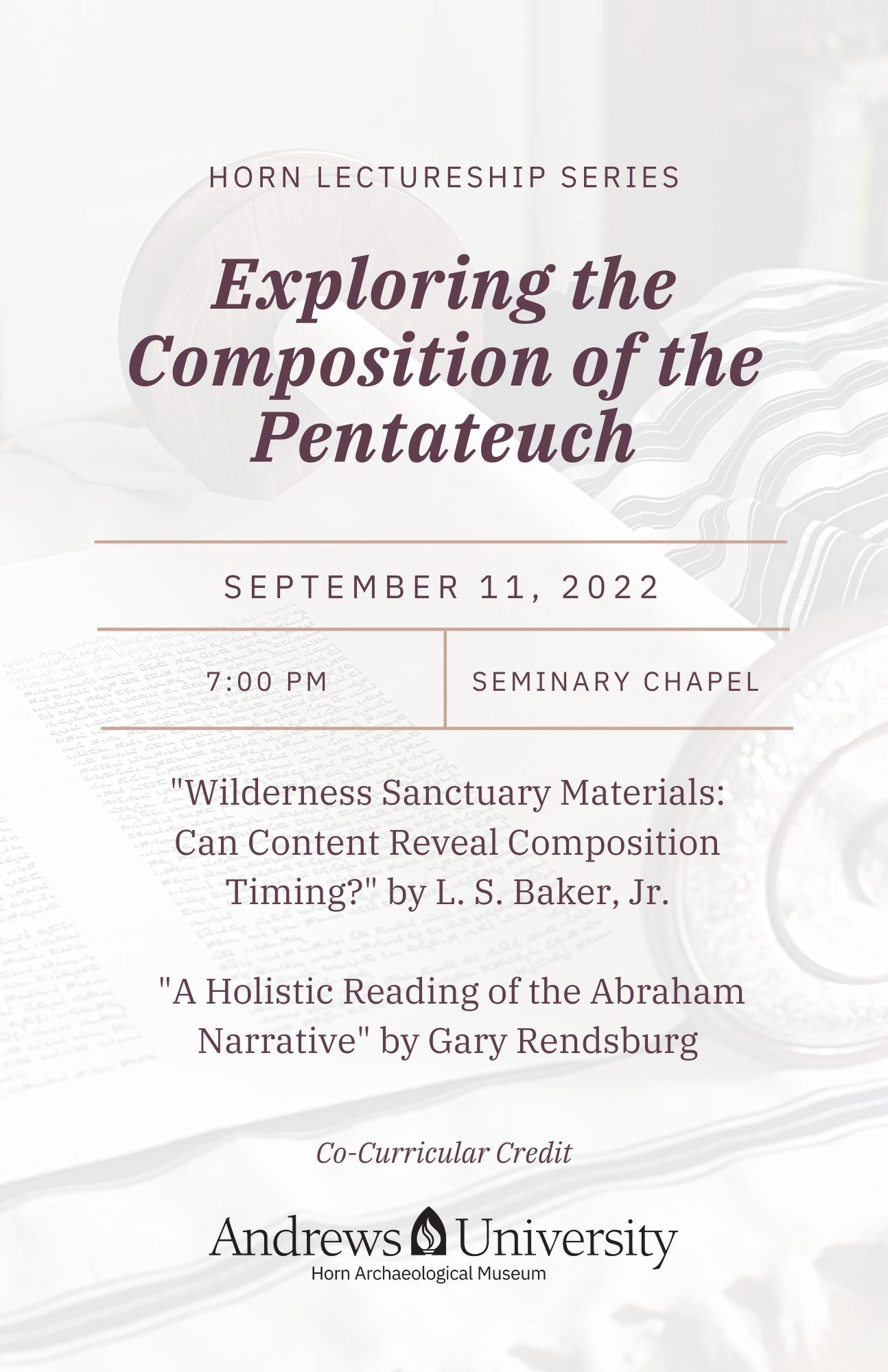Egyptian Language Practice, a Model for Hebrew Poetic Use?
Presenter Status
Editorial and Marketing Coordinator, Andrews University Press
Second Presenter Status
Assistant Professor of Biblical Studies, Department of Religion
Location
Seminary Chapel
Start Date
4-4-2016 2:30 PM
End Date
4-4-2016 3:00 PM
Session
Comparative Studies
Presentation Abstract
In ancient Egypt, multiple language stages were utilized at any one period of time in four distinct areas: theology, official communications, literature, and the spoken word. For example, in the early 18th dynasty three language stages were in use in these four areas: Classical Middle Egyptian (the oldest in use at that time) was used for theological texts, Late Middle Egyptian was used for official communications and for literature, and New/Late Egyptian (for the first time) was the language stage that was spoken in every-day dialogue. The first to utilize a new language stage (as it, no doubt, was where the new stage was developed) was the spoken word. Literature followed sometime after the spoken. Official communications tended to resist the change longer than literature but not as long as theology, which tended to utilize the oldest stage of Egyptian in use. This is a significant pattern as it demonstrates that at any one period in Egyptian history a single scribe could be expected to compose text using any of the language stages depending on the purpose of the text.
The Hebrew text also shows some traces of multiple language stages. Poetic sections have been identified as an older stage of Hebrew than the narrative bits around them. Might Egyptian language use provide a possible explanation for this that does not require the text to have been written in different periods of time?
Biographical Sketch
L. S. Baker, Jr., author of Land of Rameses, recently accepted a position as Editorial and Marketing Coordinator with Andrews University Press and thus is the former Exhibit Manager at the Siegfried H. Horn Archaeology Museum in the Institute of Archaeology at Andrews University. He also is finishing a PhD in Archaeology of Ancient Near East, emphasis Egypt. He holds a Masters Degree in Egyptian Archaeology from University College London and a Masters in Divinity from Andrews University. His undergrad work was done at the Adventist University of the Philippines where he obtained two degrees: (1) History and Philosophy of Religion and (2) Theology, graduating suma cum laude.
A. Rahel Schafer, assistant professor of Biblical Studies, is passionate about God’s word and God’s world. She has completed graduate degrees in religion and biology, and a Ph.D. at Wheaton College, researching the Old Testament portrayal of God’s response to the suffering of animals. It is Rahel’s great honor and joy to inspire her students to discover the beauty and depth of biblical truth for themselves. She loves leading her church’s youth groups, as well as backpacking and climbing mountains.
Egyptian Language Practice, a Model for Hebrew Poetic Use?
Seminary Chapel
In ancient Egypt, multiple language stages were utilized at any one period of time in four distinct areas: theology, official communications, literature, and the spoken word. For example, in the early 18th dynasty three language stages were in use in these four areas: Classical Middle Egyptian (the oldest in use at that time) was used for theological texts, Late Middle Egyptian was used for official communications and for literature, and New/Late Egyptian (for the first time) was the language stage that was spoken in every-day dialogue. The first to utilize a new language stage (as it, no doubt, was where the new stage was developed) was the spoken word. Literature followed sometime after the spoken. Official communications tended to resist the change longer than literature but not as long as theology, which tended to utilize the oldest stage of Egyptian in use. This is a significant pattern as it demonstrates that at any one period in Egyptian history a single scribe could be expected to compose text using any of the language stages depending on the purpose of the text.
The Hebrew text also shows some traces of multiple language stages. Poetic sections have been identified as an older stage of Hebrew than the narrative bits around them. Might Egyptian language use provide a possible explanation for this that does not require the text to have been written in different periods of time?




Images